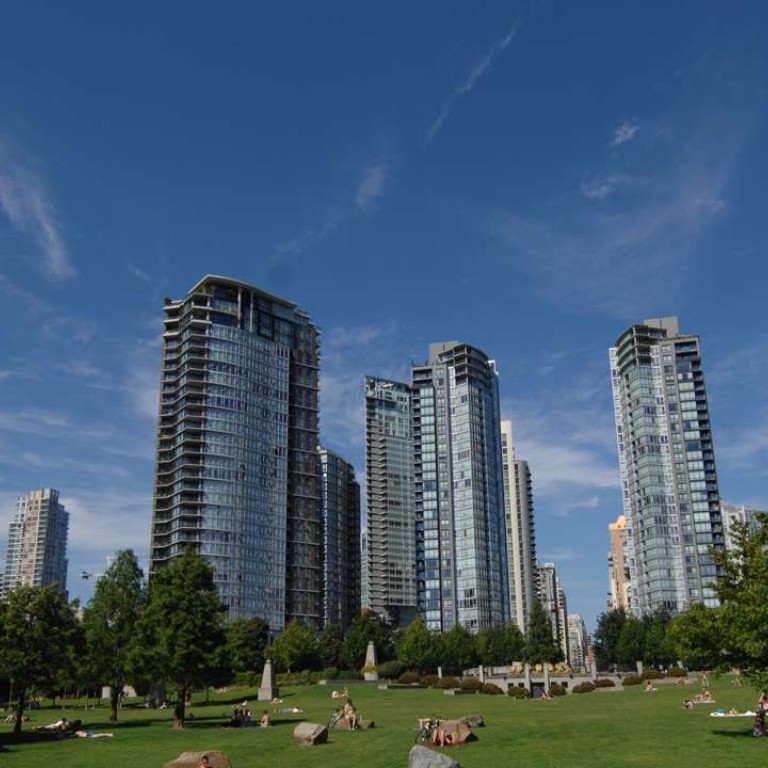
What Vancouver can learn from Hong Kong on cooling housing markets
Albert Cheng warns that the British Columbia premier’s policy of extra taxes on foreign homebuyers could misfire; the best way to make homes affordable for locals is to build more public housing
Politicians can easily get their fingers burnt when tampering with housing markets. One only has to ask former chief executive Tung Chee-hwa, whose 85,000-flats-a-year target triggered his downfall. Christy Clark, premier of British Columbia in Canada, has yet to realise this. In time, she will.
Tung’s dreams drown in developers’ sauce
Her liberal government has recently introduced a 15 per cent property transfer tax on foreign buyers as well as a nationality-blind luxury sales tax on homes priced over the equivalent of HK$12 million.
The measures are on top of the existing capital gains tax. Both buyers and sellers were caught by surprise; deals were abruptly cancelled before August 2, as there was no retrospective grace period.

These steps are meant to ease pressure on the city’s overheated home market, to make prices affordable for local first-time buyers.
Last Friday, the Real Estate Board of Greater Vancouver revealed that 2,489 detached houses, condos and town houses were sold in August, down 26 per cent from the same month last year. Only 715 detached houses in Greater Vancouver changed hands last month, a sharp 44.6 per cent decline from 2015 levels. However, the slump in transactions only drove down the average price of detached houses sold last month by about 0.3 per cent, to HK$8.9 million. Home prices, for now, remain beyond the reach of average families in Vancouver.
A One-Point Plan to tackle Vancouver’s housing affordability crisis: kill Quebec’s millionaire migration scam
The first to suffer are the property owners with a genuine need to cash in, especially senior citizens with an empty nest who want to downsize. Buyers, including foreign ones, will now demand that sellers absorb the additional costs. This has happened in Hong Kong, where developers offer special mortgages or other preferential terms to offset the extra property taxes. It is unclear whether Clark was inspired by similar moves in Hong Kong. Four years ago, a buyer’s stamp duty was adopted to require non-locals and companies owned by locals or foreigners to pay an extra 15 per cent. Buyers who acquire more than one flat here now need to pay double stamp duty. There is, however, a notable difference between the two metropolises. In general, there is no capital gains tax in Hong Kong. Yet, profits from real estate in Vancouver may be taxed as a capital gain, in which case 50 per cent is taxable. They could also be taxed as business income, in which case 100 per cent of the profit is subject to tax.
Vancouver’s housing crisis: No, not like before, and not like anywhere else (except Hong Kong)
Metro Vancouver covers an area of some 2,800 sq km; more than twice the size of Hong Kong. Like Hong Kong, there is a limited supply of land for housing. Unlike Hong Kong, Metro Vancouver’s property supply relies mainly on the second-hand market. Developers in Hong Kong have about 20,000 units a year at their disposal. There is a relatively steady supply of private housing, despite our chronic problem of land scarcity. Clark insisted the initial plunge in real estate sales and deceleration in price hikes last month were exactly what her government had aimed for.
Often overlooked are the half a million Hongkongers who have acquired a Canadian passport
She also said there would be no change to the foreign-buyer tax, which brings me to another peculiar Hong Kong angle to this policy. The rise in property prices in Vancouver has often been perceived as being caused by the Chinese, primarily mainlanders. Often overlooked are the half a million Hongkongers who have acquired a Canadian passport. Given the increasingly undesirable political situation here, many Hong Kong Canadians are tempted to head to Toronto and Vancouver. How many will eventually quit Hong Kong remains to be seen. Yet, these returnees will have a significant impact on the Canadian housing market. These buyers will be Canadian nationals, unaffected by the foreign-buyer disincentive. Has the Clark government taken this into consideration?

Foreign home buyers in Vancouver hit with HK-style 15pc tax, but millionaire migrants will be exempt
The impact of tax measures are difficult to gauge. They can be too weak to be effective or too strong to undo. The economic rules of supply and demand aside, property trends are supersensitive to market psychology. For whatever reason, once buyer pessimism sets in, no relaxation or recall of the tax measures can stop the tide. The most effective means to achieve Clark’s policy of providing affordable homes for local residents is to build more public housing in the form of co-ops. Premier Clark, you have been warned.
Albert Cheng King-hon is a political commentator. [email protected]

